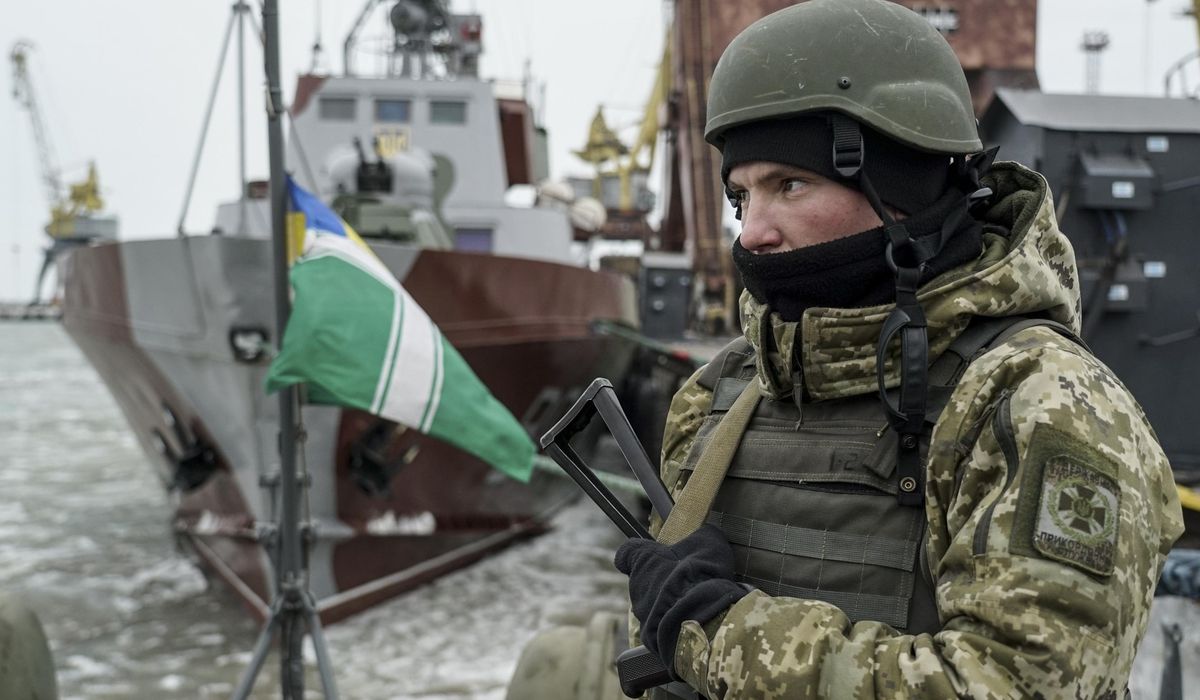
Top U.S. officials late Monday slammed Russia‘s “unprovoked escalation” in the Black Sea, saying Moscow‘s plan to blockade parts of the sea during military exercises is unacceptable and further evidence of Russia‘s intent to undermine neighboring Ukraine.
State Department spokesman Ned Price’s condemnation of the Kremlin comes amid a massive buildup of Russian troops along the Ukrainian border and underscores fears in Washington that Russia may be laying the groundwork for a major military offensive.
“The United States expresses its deep concern over Russia’s plans to block foreign naval ships and state vessels in parts of the Black Sea, including near occupied Crimea and the Kerch Strait,” Mr. Price said in a statement. “This represents yet another unprovoked escalation in Moscow’s ongoing campaign to undermine and destabilize Ukraine. This development is particularly troubling amid credible reports of Russian troop buildup in occupied Crimea and around Ukraine’s borders, now at levels not seen since Russia’s invasion in 2014, and other provocative actions by Russia-led forces” in the region.
Russia annexed Crimea, formerly a part of Ukraine, in 2014 despite vehement protests by the U.S. and NATO. The U.S. does not formally recognize the annexation.
Now, with Russian troops amassed along the border with Ukraine, Moscow is kicking off a new round of naval and air drills that will block key parts of the Black Sea for at least several months. The White House said the exercises will block access to ports in the Sea of Azov, choking off a critical economic avenue for Ukraine.
For its part, Russia argues its Black Sea exercises are a necessary part of the country’s self-defense plans. Russia‘s Black Sea Fleet said in a statement Tuesday that its latest round of drills centered on repelling enemy attacks in the area.
“A naval group comprising the frigates Admiral Makarov and Admiral Essen, the missile corvettes Graivoron and Vyshny Volochyok and also missile boats, small anti-submarine warfare ships and large amphibious assault ships held an exercise to repel a notional enemy’s air attack weapons, using active radio-electronic interference and notionally employing air defense capabilities,” the fleet said.
Meanwhile, U.S. Ambassador to Russia John Sullivan announced early Tuesday that he’ll return to Washington to talk to White House officials about the “current state of bilateral relations between the United States and Russia.” He insisted the trip home will be temporary and that he will return to Moscow in the coming weeks.
Mr. Sullivan’s departure from Moscow is occurring a week after the Biden administration imposed a new round of economic sanctions against top Russian officials and kicked 10 Russian diplomats out of America. The moves came as a response to the massive SolarWinds hack of the U.S. government and private industry, and Russia‘s efforts to influence the 2020 presidential election.
Moscow responded late last week by kicking 10 American diplomats out of the country.
Russia also recalled its ambassador to the U.S. last month after Mr. Biden dubbed Russian President Vladimir Putin a “killer” during an interview with ABC News.
Despite the deteriorating relations between the two nations, Mr. Putin on Thursday will deliver a speech at Mr. Biden’s virtual climate-change summit.
